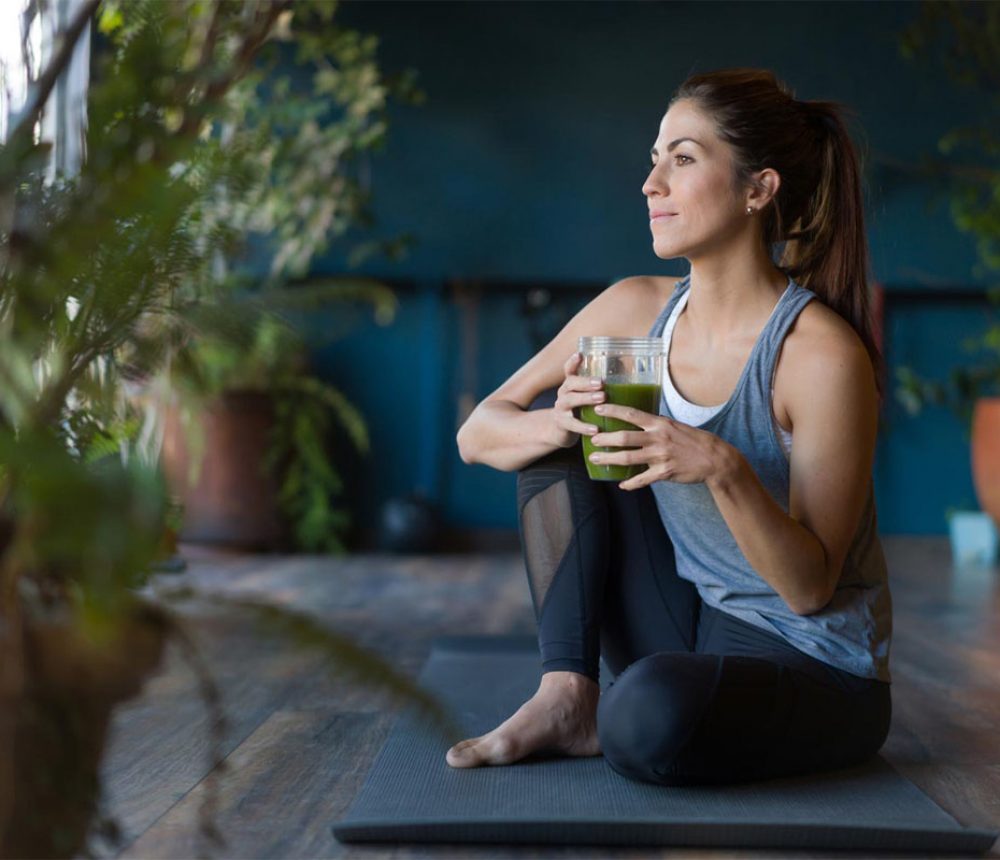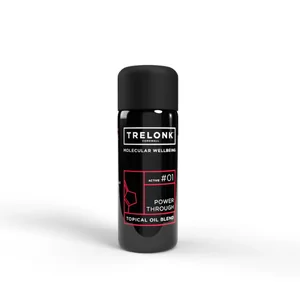
Factors such as a balanced diet and good quality sleep matter too, they’re part of the routine which aids quality recovery. Staying fuelled with nutritious food and resting up when you feel like your body needs it is all part of the process.
A solid pre-workout routine begins long before you step into your gym leggings or shorts, and as the famous saying goes, “if you fail to prepare, prepare to fail”.
Eating for fuel is a real thing. Munching on something an hour or so before you hit the weights or treadmill should provide you with enough energy to see you through a hard set. Generally, people love to stay away from carbs, but deep down, they’re our friends. Protein and carbs should be on the menu. A nice bit of toast with peanut butter, or fruits like bananas or apples are complex carbs, a great form of energy.
What are complex carbs?
Complex carbohydrates contain longer chains of sugar molecules, the body converts sugar into glucose, which is used for energy. They pack in more nutrients than simple carbs and have a good source of fibre and digest more slowly. If you’re looking to control your weight, these are great as they make you feel full and provide you with a stable source of energy.
We’ve all been educated at some point that water is vital and the requirements of how much you should drink a day of course varies on factors such as age, weight, gender and the intensity of your day/workouts.
Gulping down 2 pints of water before you workout is never a good idea. It should be consumed regularly throughout the day, and then throughout your workout. Studies have shown that athletes who are hydrated perform at a higher level than dehydrated athletes. It can also fight muscle cramps and dizziness.
Drink up!
Stretching is often considered an activity you complete post-workout. That’s not the case. Stretching promotes blood flow to the relevant muscles and allows your body to increase flexibility, this is always a good thing when you’re about to put your muscles under strain.
Warming up before you participate in any physical activity is a really important step. Your low-impact or strenuous warm up to get your body up to speed and temperature, may not necessarily burn calories or build muscle, but it will help to prevent injury.
Raising your body temperature is particularly helpful to your muscles. Oxygen can become more freely available, allowing your muscles to contract and relax with ease, letting you push yourself harder. A warmup also gradually increases your heart rate, preparing your heart for the session you’re about to undertake.
Whilst not a vital step, it most definitely effects the way you workout. Whatever you can groove and feel motivated to, add it to a playlist and get your pump on!
Unfortunately, when you think you’re done, you’re not. The last rep doesn’t mean it’s the end. Dedicating time to cool down and stretch post-workout is a step that helps range of motion, decrease muscle soreness and boost recovery time.
This is a very beneficial aspect of your workout. We often find ourselves in a rush or haste to get out of the gym and onto our next task, but there are several reasons as to why cooling down is important.
It allows your heartbeat to return to its resting heart rate (RHR). Allowing your heart rate to gradually decrease ensures that you avoid the feelings of dizziness and faintness. When your HR decreases, you will find that your breathing begins to steady too.
It also gives you an opportunity to reflect on what you’ve just accomplished. Whether you have ran further than you ever have on the treadmill, or you’ve lifted heavier, a five-to-ten-minute cool down allows you to look over your body’s fitness and gauge how you feel overall. In this moment you’ll enter a relaxation mood where the brain begins to release dopamine and serotonin, two hormones that make you feel good and happy.
One of the most overlooked aspects of exercise is stretching. Those stiff, achy pains you often feel the day after a strenuous gym session can be significantly reduced with a good old stretch. Stretching out warm and potentially already sore muscles enhances the flexibility and muscle tension caused by the workout.
Lactic acid is the devil that makes your muscles sore and tired. It’s automatically produced when you workout, but a good cool down and stretch can help to eliminate the acid that has gathered in the body.
Sweat, whilst it’s not pleasant it helps you to stay cool whilst you’re pushing your body to its limits. Without replacing the fluids you lost through sweat, you’ll find yourself getting dehydrated. Besides from replenishing fluids, rehydrating regulates body temperature and keeps your joints lubricated.
As well as restoring liquids, it’s greatly important to eat well after you’ve worked out. Generally, after a workout, your body rebuilds glycogen stores and attempts to regrow muscle proteins. Eating the correct nutrients can help fast track this process.
Receiving a massage or conducting a self-massage is another great technique to prevent muscle soreness, by reducing inflammation and decreasing recovery time by speeding up cell recovery. According to the Journal of Athletic Training a massage that takes place as soon as exercise is complete can reduce muscle soreness by 30%.
Power Through #01 has been designed with muscle and soft tissue soreness in mind. Creating an oil which can aid recovery from low-impact exercise to strenuous sessions was Trelonk’s intention. Containing active plant molecules where research has shown for them to bind to particular receptors which aid tiredness and soreness.
Massage onto the area which you have targeted in your workout, to help the recovery process.

Disclaimer: Our products are not intended to prevent, treat or cure any disease or serious illness. If you have any health concerns please contact your doctor or pharmacist.
© 2022 TRELONK